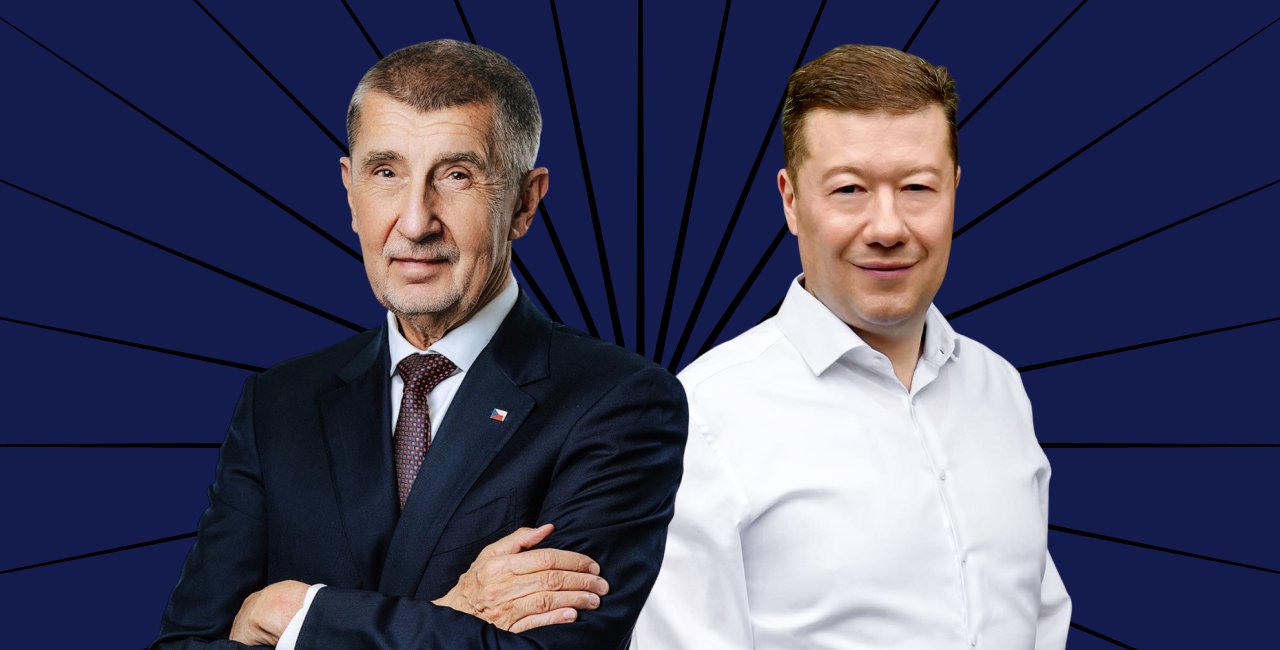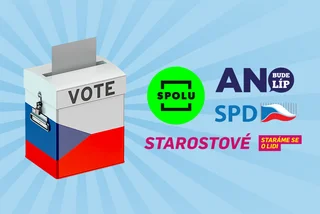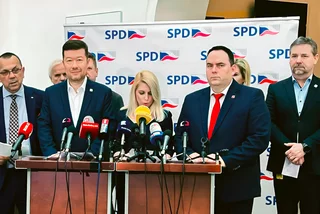Czech politics is poised for a right-wing ideological and policy transformation that could soon affect your bills, migrant status, and even how your city looks. The populist ANO movement, which received by far the largest vote share in the election, has officially struck a deal with the far-right Freedom and Direct Democracy (SPD) party and the right-populist Motorists movement to form a coalition.
The three parties plan to sign their coalition agreement on Monday, Nov. 3, the same day the new-look Chamber of Deputies (the lower house of parliament) meets for the first time. They will then present it to President Petr Pavel.
Pavel tasked ANO chief Andrej Babiš with forming a government following the October elections. The pair met this week, and after reportedly productive talks, Babiš says he aims to have the new cabinet in place by mid-December. This is also when the billionaire would begin his second stint as prime minister, previously serving in 2017-21.
How much control will each party have?
In Czech politics, the allocation of places in the 200-seat Chamber of Deputies depends on votes received in the election. ANO has 80, the SPD party 15, and Motorists 13. Together, the coalition will surpass the 101 seats needed to rule.
Here’s an important takeaway: the SPD and Motorists, owing to their much lower seat share, will have far weaker control and influence over policy. However, in tight political decisions and votes, ANO will need to lean on the SPD and Motorists for support.
Where do the parties stand?
On immigration, all three groups promise much tighter control. ANO rejects EU migrant quotas, but avoids overtly xenophobic language. It has a strong right-wing, protectionist-nationalist stance on immigration and has pledged to reduce the number of Ukrainian asylum seekers entering Czechia.
The SPD pushes for reviews of existing residence permits, including those of Ukrainians, who the party wants to deport en masse unless they meet specific rules on work qualification. The Motorists link migration to national sovereignty and call for referendums on asylum rules while advocating for fewer benefits streaming to non-economic immigrants.
On the environment, the parties are united against the EU Green Deal but differ in tone. ANO promotes nuclear energy and slower decarbonization, arguing for the “pragmatic” protection of industry. SPD condemns “green fanaticism,” while the Motorists base much of their purpose on opposing the EU’s environmental regulations.
On defense, ANO supports continued NATO membership and funding, but with caution on foreign commitments and aid to Ukraine. SPD questions the alliance’s value and advocates much lower defense spending, while the Motorists oppose military aid abroad, emphasizing “Czechia first.”
When it comes to the EU, ANO has repeatedly pledged full support of staying in the union, despite disagreeing with aspects of policy. The SPD wants to leave the EU. The Motorists fall somewhat in the middle, advocating for widescale reform: “We do not seek to leave the EU, but to change it from within.”
Mired in scandals and controversy
The Motorists movement faces serious scrutiny. Its honorary president, Filip Turek, is under police investigation for alleged racist and extremist social media posts referencing dictators Adolf Hitler and Benito Mussolini. He was recently poised to become foreign affairs minister, which is still a possibility.
He also lied to the public when a video of him speeding surfaced on social media; he claimed the video was taken on a German highway, but it was Czech. His former partner this year accused him of violence and rape, which he strongly denies.
Motorists’ leader Peter Macinka, set to become environment minister, has committed to overhauling environmental policy, naming activists “green terrorists” and infamously saying: “Green blood might flow for a while.”
Thousands of demonstrators also filled Prague’s Hradčanské náměstí less than two weeks ago and, more recently, Brno to protest against his appointment.
SPD leader Tomio Okamura is also no stranger to controversy: he faced a lawsuit from Czech authorities last year for billboards displaying a dark-skinned man with a bloody knife, equating migrants to murderers.


